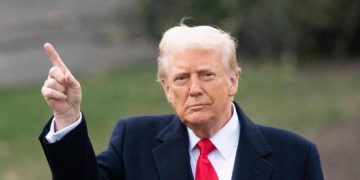
In what could be described as the least expected outcome, the international oil benchmark, Brent crude, which stood at $45.72 per barrel on Sunday, has slumped to $33 per barrel. READ ALSO: Fuel Would Become Cheaper Soon- NNPC Boss, Kyari
Oil prices suffered a historic collapse overnight after Saudi Arabia shocked the market by launching a price war against a former ally, Russia.
Brent, against which Nigeria’s crude is priced, fell by $11.62 to $33.45 as of 9.00 am Nigerian time on Monday. According to reports on Reuters, it dropped to $31.02, its lowest since February 12, 2016.
Reports delivered by CNN Business suggest that traders, all over the world, are bracing up for Saudi Arabia to flood the market with crude as they bid to recapture market share.
Recently, the negotiations between the Organisation of Petroleum Exporting Countries, OPEC, and its partners broke down as Russia, the leader of the 10 allies, adamantly refused to go along with a plan for deeper crude production cuts to tackle the coronavirus’ impact on global oil demand.
Brent, which has been on a downward trend since the coronavirus broke out, fell by $3.84 to $46.15 per barrel as of 8:10 pm Nigerian time on Friday.
OPEC had earlier revealed a plan under which it would slash its production quotas by an additional 1 million barrels per day for the rest of the year, with Russia contingent and nine other non-OPEC allies agreeing to shrink their production by 500,000 barrels per day.
Oil prices were already stuck in a bear market because of the coronavirus outbreak that has caused demand for crude to fall sharply.
But then Saudi Arabia escalated the situation further over the weekend as the Arabian nation slashed its April official selling prices by $6 to $8. According to analysts, it is in a bid to retake market share and heap pressure on Russia.
In the meantime, there are fears from experts that Nigeria could slide into recession if urgent steps are not taken to properly position the country as the price of crude continues to slide.
Between April and June 2016, Nigeria slipped into a recession caused by a critical fall in global oil price. The oil prices fell from about $112 per barrel in 2014 to below $50 dollars per barrel in 2016.
Since Nigeria recovered from its last recession, President Muhammadu Buhari promised to diversify the Nigerian economy from being oil-dependent. That, however, is still a long way from being achieved.
Already, Nigeria’s ability to cushion any effect of global oil price has been weakened as the country’s Excess Crude Account dropped to about $71 million in February from over $2 billion in November 2018.














